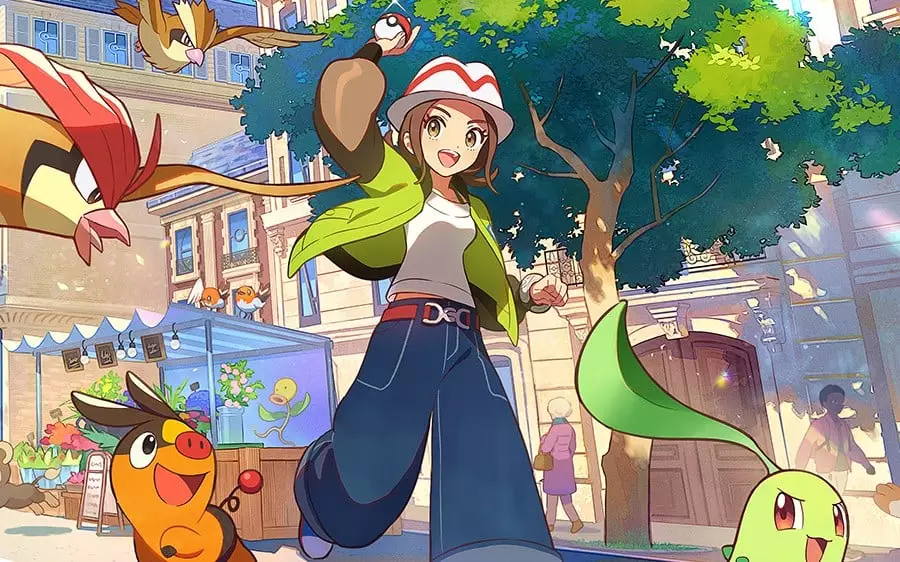In the competitive landscape of gaming, especially within the Pokémon universe, exclusive distribution offers serve as powerful motivators for fans and collectors alike. The recent announcement surrounding Pokémon Legends: Z-A showcases a strategic effort by Nintendo and The Pokémon Company to generate buzz and incentivize pre-orders through region-specific bonuses. While such offers seem advantageous at face value, an in-depth critique reveals that their true value hinges on multiple factors—timing, accessibility, and the perceived worth of the rewards. These exclusive codes, often tied to physical events like store openings or regional celebrations, create an aura of exclusivity that can influence purchasing decisions significantly. However, this raises questions about fairness and inclusivity, especially considering the digital age’s push towards open access. Do these regional bonuses truly serve the wider community or merely deepen the divide between dedicated collectors and casual fans?
Pre-Order Incentives: Between Hype and Limitations
The Pokémon distribution strategy cleverly balances immediate hype with long-term engagement. Offering downloadable content such as a Slowpoke in a Cherish Ball and a trench coat outfit sets the stage for anticipation, but the devil lies in the details. The recent updates indicate that some items, initially marketed as pre-order exclusives, can actually be obtained through standard gameplay, a move that attempts to mollify disappointed fans who may have missed the pre-order window. Yet, this flexibility might dilute the perceived value of pre-ordering—was the incentive sincere, or merely a marketing ploy? Furthermore, the limitation on distribution windows—such as the six-week span in Japan or the timed email codes in the US—creates a race against time that might pressure fans into rushed decisions, often at the expense of a leisurely, thoughtful purchase.
The Regional Disparities and Cultural Implications
One of the most striking aspects of these Pokémon promotions is their regional exclusivity. The distribution in Japan coincides with the opening of a new Pokémon Center, tying in local cultural identity with international marketing. Meanwhile, other regions like Australia are receiving bespoke bonuses through partnerships with local retailers such as EB Games. While the localized approach makes sense in a business context, it can foster perceived inequality among fans worldwide. Why should a Japanese trainer attending the Pokémon Center event have access to a rare Slowpoke, while players elsewhere are left waiting or resorting to secondary markets? These disparities sometimes undermine the universal appeal of Pokémon, which prides itself on bringing diverse communities together. The question then becomes: are these regional strategies simply marketing tools, or do they risk fragmenting the global community that has long been one of Pokémon’s greatest strengths?
The Long-Term Impact on Player Engagement
Beyond immediate hype, these exclusive bonuses are intended to deepen players’ investment in the game. Custom outfits or rare Pokémon give players an immediate sense of ownership and pride, but they also set a precedent—one where access to special content depends on timely pre-orders or regional luck. This approach can cultivate a competitive environment where privileges are unevenly distributed, possibly leading to frustration among fans who cannot participate in specific events or purchase at certain stores. Additionally, the focus on collecting limited-time items might shift the community’s focus away from gameplay mastery towards acquisition strategies, which could diminish the core experience of exploration and battling. Ultimately, while these promotional strategies craft a compelling narrative of exclusivity, they run the risk of alienating the very fans they aim to excite if not carefully managed.
Balancing Innovation with Fairness
As Pokémon continues to evolve with new hardware like the anticipated Switch 2, the temptation to leverage exclusive content as a continuous engagement tool intensifies. Yet, the crux of sustainable community growth lies in balancing innovation with fairness. Giving certain players early access or region-specific bonuses can create a sense of privilege but may also foster resentment or apathy elsewhere. In the era of digital connectivity, it’s crucial for developers to craft promotion strategies that reward loyalty while maintaining a sense of fairness and inclusion. Ultimately, the true power of Pokémon lies in its universal appeal and the community it fosters; any promotional tactic that threatens this unity risks undermining the very essence of what makes Pokémon a global phenomenon.

